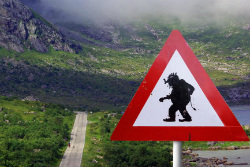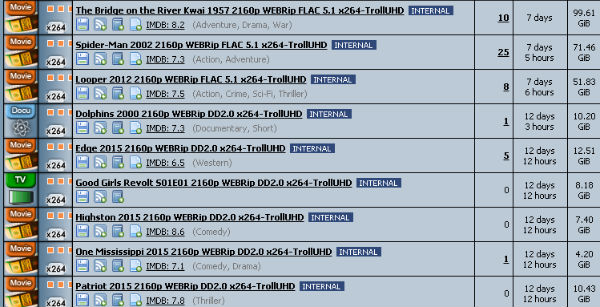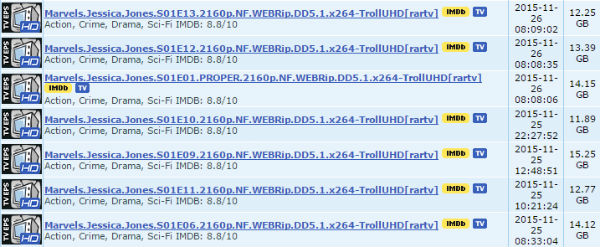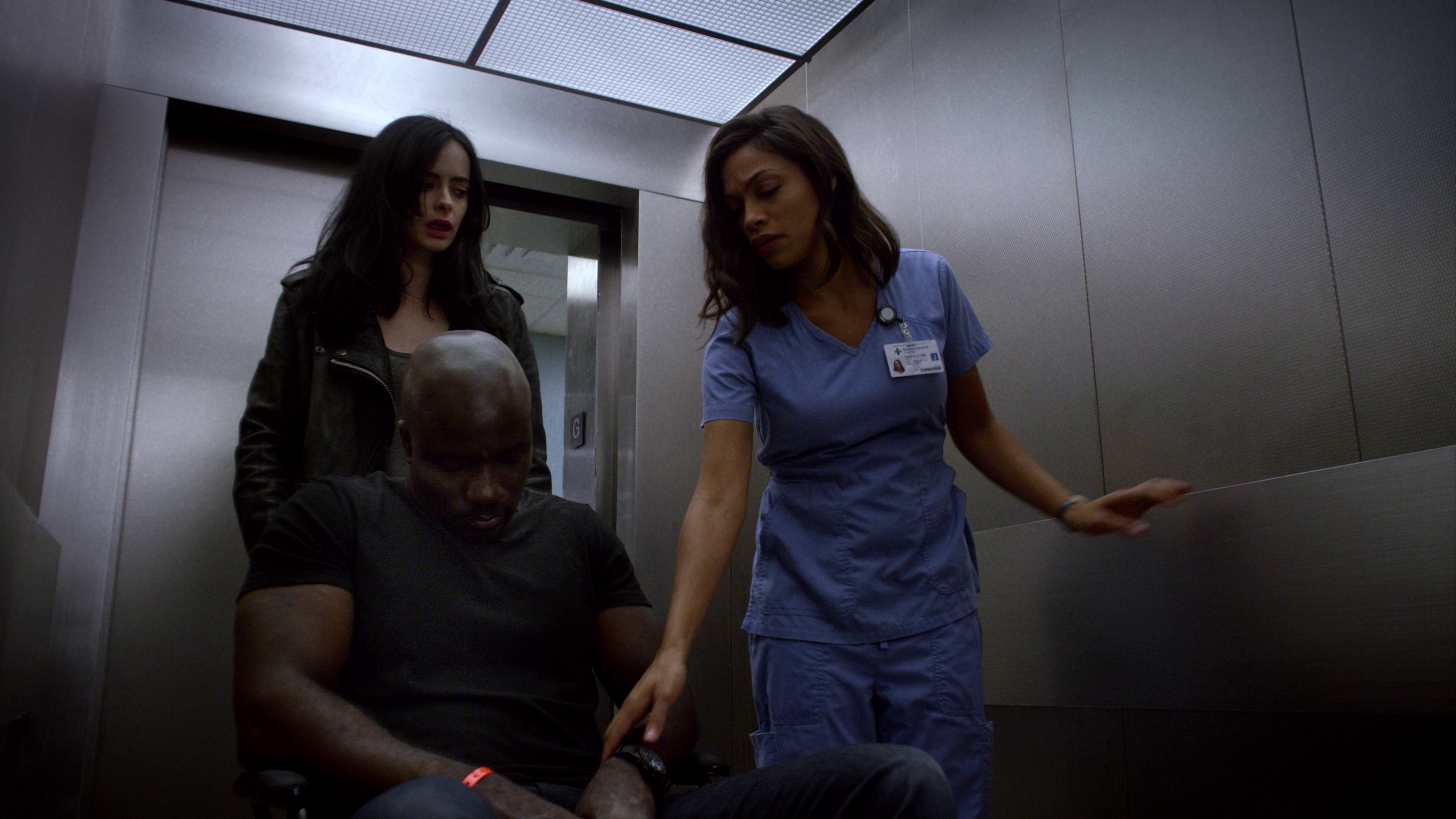 Earlier this month TF broke the news that Sky Broadband in the UK were sending letters out to some of their customers, warning them they’re about to be accused of downloading and sharing movies without permission.
Earlier this month TF broke the news that Sky Broadband in the UK were sending letters out to some of their customers, warning them they’re about to be accused of downloading and sharing movies without permission.
When they arrive the threats will come from Golden Eye International (GEIL), the company behind the ‘Ben Dover’ porn brand that has already targeted hundreds of people with allegations of Internet piracy.
“It’s likely that Golden Eye International will contact you directly and may ask you to pay them compensation,” the ISP warned.
In fact, GEIL will definitely ask for money, largely based on their insistence that the evidence they hold is absolutely irrefutable. It’s the same tune they’ve been singing for years now, without ever venturing to back up their claims in court. Sadly, other legal professionals are happy to sing along with them.
“Don’t do anything illegal and you won’t get a letter,” intellectual property specialist Iain Connor told The Guardian last week.
“Golden Eye will only have gotten details of people that they can prove downloaded content and so whether the ‘invoice’ demand is reasonable will depend on how much they downloaded that infringed copyright material.”
Quite aside from the fact that none of these cases are about downloading copyrighted material (they’re about uploading), one has to presume that Connor isn’t personally familiar with details of these cases otherwise he would’ve declared that interest. Secondly, he is absolutely wrong.
Companies like GEIL sometimes get it wrong, the anti-piracy trackers they use get things wrong, and ISPs get things wrong too. An IP address is NOT a person but innocent parties have to go to huge lengths to prove that. IT worker Harri Salminen did just that and this week finally managed to publicly clear his family’s name.
It started two years ago when his wife – the Internet account payer – was accused by an anti-piracy outfit (unconnected to GEIL) of pirating on a massive scale.
“They claimed that thousands of music tracks had been illegally distributed from our Internet connection,” Salminen told local media.
“The letter came addressed to my wife and she became very anxious, since she didn’t understand what this was all about. According to the letter, the matter was going to the court and we were advised to make contact to agree on compensation.”
Sound familiar? Read on.
The Salminen family has two children so took time to ensure they hadn’t uploaded anything illegally. Harri Salminen, who works in the IT industry, established that they had not, so began to conduct his own investigation. Faced with similar “irrefutable” IP address-based evidence to that presented in all of these ‘troll’ cases, what could’ve possibly gone wrong?
Attached to the letter of claim was a page from Salminen’s ISP which detailed the name of his wife, the IP address from where the piracy took place, and a date of infringement. This kind of attachment is common in such cases and allows trolls to imply that their evidence is somehow endorsed by their target’s ISP.
Then Salminen struck gold. On the day that the alleged infringement took place the IT worker was operating from home while logged into his company’s computer systems. Knowing that his company keeps logs of the IP addresses accessing the system, Salminen knew he could prove which IP address he’d been using on the day.
“I looked into my employer’s system logs for IP-addresses over several weeks and I was able to show that our home connection’s IP address at the time of the alleged act was quite different from the IP address mentioned in the letter,” he explained.
So what caused Salminen’s household to be wrongly identified? Well, showing how things can go wrong at any point, it appears that there was some kind of screw-up between the anti-piracy company and Salminen’s ISP.
Instead of identifying the people who had the IP address at the time of the actual offense, the ISP looked up the people using the address when the inquiry came in.
“The person under employment of the ISP inputs a date, time, and IP-address to the system based on a court order,” anti-piracy group TTVK now explains.
“And of course, when a human is doing something, there is always a possibility for an error. But even one error is too much.”
Saliminen says that it was only his expertise in IT that saved him from having to battle it out in court, even though his family was entirely innocent. Sadly, those about to be accused by Golden Eye probably won’t have access to similar resources.
“We have only written to those account holders for whom we have evidence of copyright infringement,” Golden Eye’s Julian Becker said confidently last week.
Trouble is, Golden Eye only has an IP address and the name of the account holder. They have no evidence that person is the actual infringer, even presuming there hasn’t been a screw-up like the one detailed above.
“We have written to account holders accusing them of copyright infringement, even though it’s entirely possible they personally did nothing wrong and shouldn’t have to pay us a penny,” is perhaps what he should’ve said.
But that’s not only way too frank but a sure-fire way of punching a huge hole in GEIL’s bottom line. And for a troll like GEIL, that would be a disaster.
Source: TorrentFreak, for the latest info on copyright, file-sharing, torrent sites and ANONYMOUS VPN services.

 This week we have two newcomers in our chart.
This week we have two newcomers in our chart.  In 2010, I got a
In 2010, I got a 
 Next week marks the start of a crucial trial that may define how U.S. Internet providers deal with pirating subscribers in the future.
Next week marks the start of a crucial trial that may define how U.S. Internet providers deal with pirating subscribers in the future.  Earlier this month TF
Earlier this month TF  While the average consumer is generally not equipped to play 4K content on their TV or computer, many video geeks are looking forward to every new release.
While the average consumer is generally not equipped to play 4K content on their TV or computer, many video geeks are looking forward to every new release.

